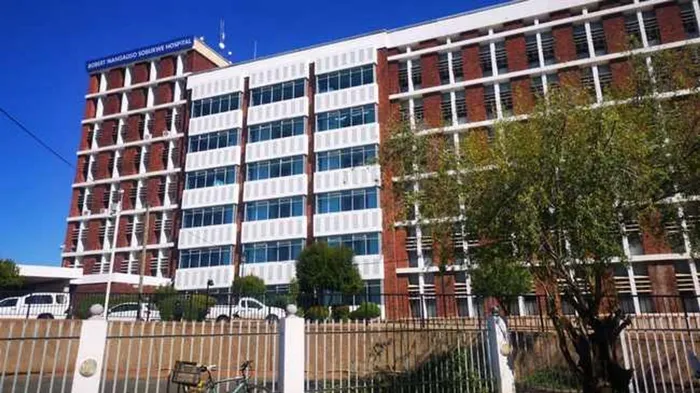Patient well-being under spotlight

Robert Mangaliso Sobukwe Hospital in Kimberley. File picture
THE WELL-being of patients at Robert Mangaliso Sobukwe Hospital in Kimberley has once again come under scrutiny due to allegations of severe under-resourcing.
The hospital apparently lacks essentials such as blankets, toilet rolls and warm water, and is grappling with a shortage of staff.
Recently, the family of a patient admitted for a severe stroke shed light on the dire situation.
They took to social media to express their dissatisfaction after the hospital denied them permission to visit the “neglected” patient outside of regular visiting hours.
Upon discovering the patient in a soaked bed, hungry and cold, the family said they went as far as asking for special permission to assist in caring for the patient during her hospital stay.
They added that they were constantly at loggerheads with “arrogant” nurses who claimed that nothing could be done due to the hospital being under-resourced.
Anto Mhlanga, the daughter of the patient, said they opted to rather take her mother home in order to take proper care of her.
However, the doctor intervened, warning them of the high risk due to her co-morbidities.
Mhlanga said her mother was rushed to hospital last Friday and had to wait in recovery as she waited for a bed.
She added that they were shocked to find the patient in a wet bed, with dirty sheets and bed sores.
“My mother was cold and hungry. Her health was deteriorating because the staff was too busy to feed her,” Mhlanga claimed.
“We asked for a nappy and a blanket in order to bath her and put her in a warm bed, but we were told by the nursing staff that neither of the items was available.
“When we enquired about the lack of attention given to my mother, the response was that the staff couldn’t attend to my mother due to a shortage of personnel," explained an upset Mhlanga.
“We were further frustrated by the fact that our hands were tied and that the staff were being arrogant when we raised our concerns. This is what drove us to contact the CEO, Dr Alastair Kantani, and Health spokesperson Lebogang Majaha.
“The strangest thing happened, after we contacted management and they agreed to meet with us, the treatment around my mother improved.
“All of a sudden, we were granted permission to visit her any time in order to assist when there was a problem. We received clean sheets regularly, and nappies were packed next to her bed.
“Ever since, we always find her in good condition and even go visit three to four times a day. They bath her and even have time to feed her.
Despite the positive resolution, Mhlanga questioned why they had to fight for her mother’s right to decent medical care in the first place.
“What about those who cannot fight, or don’t know their rights? What about the rest of the patients who have been in the hospital for days and do not have relatives nearby?
“What is disturbing is that my mother was not the only patient being neglected. The other patients were also complaining that they were exposed to the cold. Another female patient was even crying that she was cold and did not have anyone in town to bring her a blanket.
“There was no warm water to bath and we were told that the geyser does not work … nor the urn or the kettle.”
Mhlanga added that they were also frustrated in their efforts by the security guards at the gate, who “refuse us entry into the hospital and say it is outside visiting hours”.
“This is unfair and I ask myself whether the security personnel really know what patients are going through.”
She said the ordeal had left the family with many questions.
“Where did the nappies and linen suddenly come from, and who were they really being kept for? Is this what we voted for a month ago? Was it to grovel in order to receive the services we deserve?
“Even though our matter was resolved, much more needs to be done to improve the service to the poor. The hospital is a mess and the people high up seem to be ignoring it. We never asked for special treatment and my question remains, what about the rest of the patients?”
The Northern Cape Department of Health had not responded to media enquiries by the time of going to print.